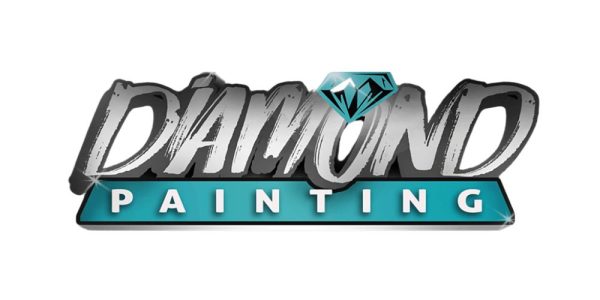
Ian Bickis, The Canadian Press
Mortgage shopping isn’t getting much easier these days.
The highly anticipated interest rate cuts so many have been banking on this year keep getting pushed back, while borrowers lost an aggressive rate advertiser after HSBC Canada was taken over by RBC.
The challenges mean it’s all the more important to do research and negotiate on rates, mortgage experts say, though they also caution that there’s more to focus on than just what looks like the cheapest upfront option.
It’s not just brokers who emphasize the importance of negotiating — even RBC chief executive Dave McKay points out that they’re expected.
In pushing back against criticism that the bank’s takeover of HSBC Canada would lower mortgage competition, he said the international bank’s low rates were a marketing ploy and that it generally didn’t move from them, whereas other banks do.
“They didn’t negotiate with the customer a better rate off the posted rate, whereas all the other banks, including ourselves, we put a posted rate out there, and then we negotiate with the customer off that rate,” McKay said in an interview.
But the loss of HSBC Canada does make it a little trickier to find out what the lowest rates might be, said mortgage strategist Robert McLister.
“As soon as they left, the lowest nationally available uninsured variable rate rose 14 basis points," he said. “A lot of people inadvertently overpay if they don’t see those low advertised rates."
Barrie's News Delivered To Your Inbox
By submitting this form, you are consenting to receive marketing emails from: Central Ontario Broadcasting, 431 Huronia Rd, Barrie, Ontario, CA, https://www.cobroadcasting.com. You can revoke your consent to receive emails at any time by using the SafeUnsubscribe® link, found at the bottom of every email. Emails are serviced by Constant Contact
To find the absolute best rates you might get is going to take a lot of calls, he said, starting with a couple of brokers and lenders directly, along with checking comparison sites, and getting offers in writing.
Knowing what some of the best options are allows you to either go with what you’ve already found, or go to a bank or other competitor to see if they’ll match.
“It takes some leg work … you need competitive intel; that’s your ammunition.”
It can be worth it, since knocking a few points off a mortgage can add up. Every 0.1 percentage point per $100,000 mortgage translates to roughly $480 of interest savings over five years on a 25−year amortization, he said.
Banks are keenly aware of how rate−sensitive shoppers are. McKay said customers will switch lenders over as little as 0.05 percentage points.
“This is an incredibly competitive marketplace,” he said.
The loss of HSBC Canada does mean less competition for the Canadian banking sector, but it likely won’t affect the available rates, said Claire Célérier, an associate professor of finance at the University of Toronto’s Rotman School of Management.
She said customers are generally aware of the importance of mortgage rates, so banks will keep them attractive, at least for those who push. Banks expect to profit off fees and other routes, and possibly use the rates to get notoriously loyal bank customers to switch institutions.
“The mortgage market is relatively competitive, because this is how they attract new clients. You may change banks if you can negotiate a mortgage at a lower rate.”
In the low−interest rate years after the global financial crisis, Canadian banks also increased how much interest they added to the Bank of Canada rate to create their prime rate, from 1.5 per cent to two per cent, she noted.
The increase, ostensibly to help offset the effects of low rates, have stayed at the two per cent level, even as interest rates rose, potentially giving banks an extra buffer to play with, said Célérier.
But as important as it is to push for a lower rate, borrowers need to be wary of what seems like too great a rate, said Leah Zlatkin, mortgage broker and LowestRates.ca expert.
“There’s certain mortgages out there that are very specialized products that offer you insanely low rates, but you have to sell the property or die to get out of that mortgage.”
Some lenders have mandatory default insurance, or will only hold a rate for a limited time, or have high fees if you want to break the mortgage early.
“If you don’t truly understand why you’re getting a low rate, or why that rate is so much lower than everybody else’s, well, then you should really be asking those questions," she said.
On the flip side, there are benefits to look for beyond rates. Some lenders do automatic appraisals, rather than charging for one in person, which can save around $500, or offer the use of their in−house legal team, said Zlatkin.
Some lenders also offer cash back on rates, or will pay all the fees if you switch to them, including legal, appraisal and even discharge fees.
Finding the right offer also requires knowing what kind of mortgage you’re looking for, which given all the uncertainty around interest rates can be a challenge.
After last week’s higher−than−expected inflation read out of the U.S., BMO removed one of its expected interest rate cuts in Canada for this year, now expecting three cuts from the Bank of Canada and two from the U.S. Federal Reserve.
The near−term uncertainly, combined with continued confidence that rates will trend down in the next few years, means that the three−year fixed is still generally the best bet, said Zlatkin.
A variable−rate mortgage can make sense for those who are incredibly bullish that inflation and interest rates will fall sharply, but overall it’s a tough bet, she said.
“The spread on a variable to a fixed rate right now is just too high for that theory to make sense for me.”
Both McLister and Zlatkin also noted it’s good to be mindful of those helping you find a rate.
Zlatkin said it’s better to be up front and transparent about intentions, so her team doesn’t waste too much time, while McLister noted it can often make sense to go with a slightly higher rate if you trust the broker and they’re being helpful.
"Sometimes paying a little bit more for good advice can save you more in the long run.”
banner image: The Canadian Press











